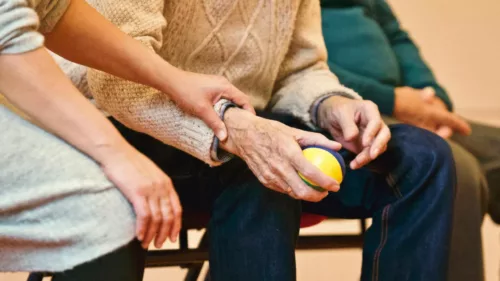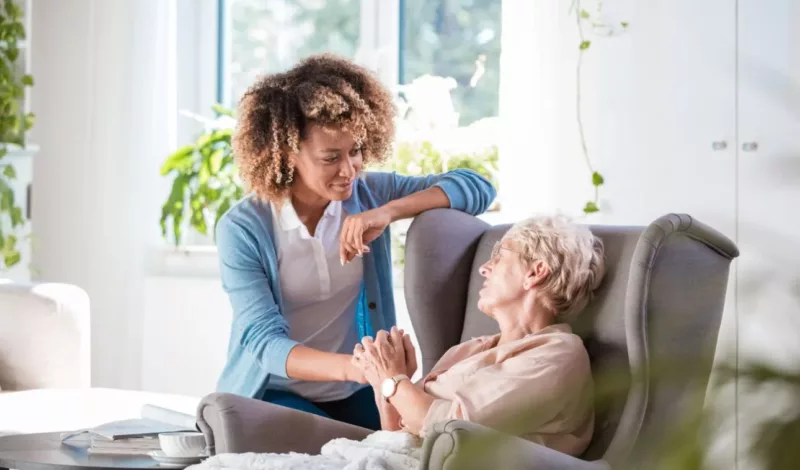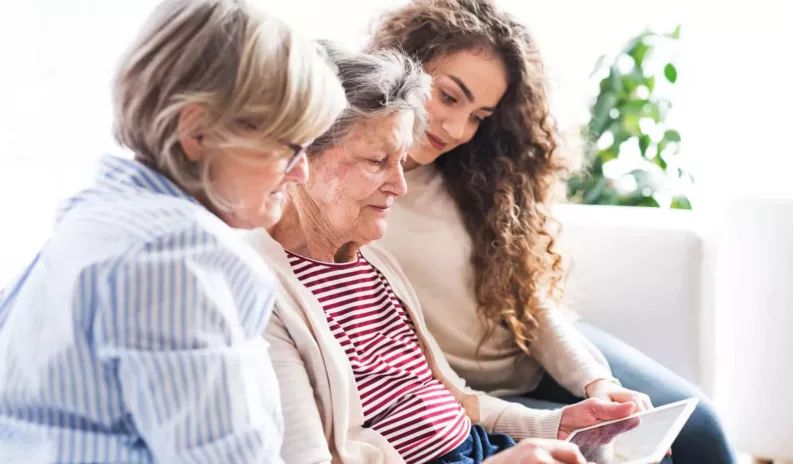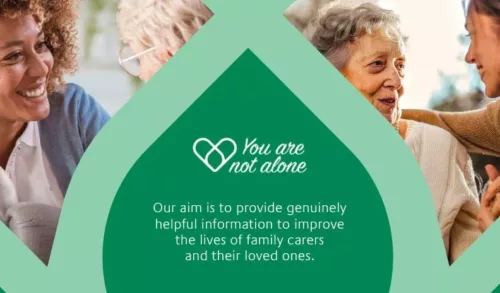
How is dementia diagnosed?
Dementia can be difficult to diagnose as the symptoms can be similar to that of other problems such as depression, or the side effects of some medications. It is important to get an official diagnosis to help you and your family members prepare and plan for the future.
A lot of people want to know how dementia is diagnosed and the first step of a dementia diagnosis is to visit the GP for an assessment. The GP will discuss symptoms, medical history and may carry out a physical and/or mental examination of the person’s abilities. This may include asking about things such as washing or dressing, cooking and shopping. By doing this, the GP may be able to rule out other causes. At the end of the assessment the doctor will explain what the next steps should be.
The second step of a dementia diagnosis will involve referral to a specialist or a specialist clinic who has more knowledge of dementia, such as a neurologist, psychiatrist or geriatrician. The specialist will undertake further assessments of the person to learn more about their physical and mental abilities. If necessary, a brain scan may be carried out and the person may be referred to a memory clinic. There is no specific diagnostic test for dementia.
The final step of a dementia diagnosis involves bringing together all the information learnt from the person’s medical history, symptoms, physical and mental assessments and scans. Using this information, a diagnosis can be made.
Tips for visiting the GP to discuss your concerns
If you are a carer accompanying someone to their GP, try the following tips to make the visit a little easier:
• Keep a list of everything that needs discussing with the GP, such as a list of the symptoms being experienced or questions that you, or your family member, would like to ask. Start with this list as soon as the consultation begins.
• Write down anything important that the GP says so you can look it up later or refer back to it at the next visit. During the visit, you may feel overwhelmed so this is really important.
• Always ask the GP to explain something if you or the person you’re supporting doesn’t understand.
• Keep in mind that the appointment is for the person you are caring for, so ensure that they get to ask as many questions as they wish and feel heard.
• Allow the person time at the end of the appointment to speak to the GP alone.
What next?
Often, the charity associated with your diagnosed illness is the first place to turn, for help and advice. We would suggest getting in touch with:
Dementia Friends: Alzheimer’s Society’s Dementia Friends programme is the biggest ever initiative to change people’s perceptions of dementia. It aims to transform the way the nation thinks, acts and talks about the condition.
Dementia UK: who are there to give guidance on everything from coming to terms with diagnosis to financial and legal support.
There is help and support available to you in the local community.Your support network may include your family, local communities and charities, as well as other friends and family. In many ways, your lifestyle will change as your loved one’s dementia progresses, and it’s important to ensure that you are able to share your experiences with others and seek support and help that you need, especially if you are caring for them at home.

Memory Clinics
The person’s GP may also refer them to a memory clinic where preliminary tests will be carried out and an appointment can be made. The aim of the memory clinic is to:
• Provide an in-depth assessment of a person’s memory function and cognition
• Make a diagnosis
• Offer treatment where appropriate
• Provide private advice and put people in touch with appropriate services in their local community
The nurse, doctor or psychologist at the clinic will spend time with the person to try and understand the difficulties they are facing and then ask a series of questions to assess their memory and thinking processes. The information learnt will then be reviewed to decide whether further action is necessary.
You can find out more information about memory clinics on the RICE website.
Admiral Nurse
Admiral nurses are specialists in caring for people with dementia. Highly trained and supported by Dementia UK. Admiral Nurses offer practical advice, emotional support, and education to both individuals with dementia and their families. They work closely with families to develop personalised care plans, provide information about dementia, and offer guidance on managing symptoms and behaviours associated with the condition
Please call 0800 888 6678 or email helpline@dementiauk.org for more information.
Specialist dementia homecare options
A change of environment and routine can be disorientating for people living with dementia; this is why homecare providers work with clients and their loved ones to produce unique care plans. These cover the support they require to feel confident and live their lives to the full. Homecare enables people with dementia to live as normal a life as possible, maintaining a sense of independence and dignity.
Visiting Care
Visiting care is where a trained care professional comes into your home to help with daily tasks that you, or someone you love, may be struggling with. The visits can range from a 30 minute call to help with meal prep, to multiple visits each day. The level of support ranges from companionship and help with everyday household tasks, to support with aspects of personal care such as washing and dressing.
Live-in Care
As dementia progresses, you or your loved one may require more support than visiting care can offer. Live-in care ensures that you or your family member are looked after around the clock. Having a car professional stay with a person in the comfort of their home, can help them to feel safe and comforted. Care professionals are carefully matched to each client to ensure compatibility and for both services, tailored care plans are created.
Respite Care
Respite breaks can be either planned or unplanned, depending on circumstances. GoodOaks do not require an on-going contract for respite care, there is no minimum notice period – just a helpful and friendly team standing by to support you when and where you need them. At GoodOaks we believe that family carers must be able to take a break from providing long-term care for a loved one – this is essential not only for the carer, but also the care recipient.
At GoodOaks, we offer specialist dementia care for those living with dementia that need that extra support to remain at home. We also offer respite care for the people who are looking after them.
Download our free guides

We understand the stresses, strains, highs and lows, of caring for a loved one and this is why we want to celebrate and support the commitment that millions of people make to those they love who are struggling to cope day-to-day at home.
Our “You Are Not Alone” campaign aims to address the lack of support and resources for individuals needing some extra help to remain independent, and their family carers.
Download our free guides for helpful advice and remember, You Are Not Alone.





